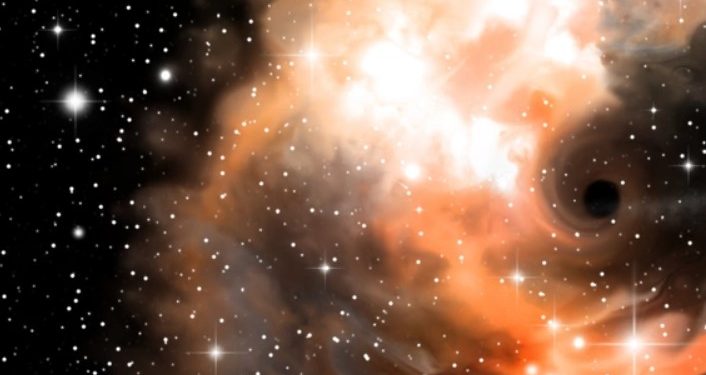Black holes are one of the mysteries that have intrigued scientists the most. His research is extremely complicated, due to the enormous difficulty of identifying them.
Simply put, it is very complex to find a black hole, unless you are actively feeding or colliding, since they do not emit any electromagnetic radiation.
The electromagnetic radiation of a black hole cannot reach a velocity that allows it to escape beyond the event horizon (it is a kind of limit between what may or may not escape its gravity), therefore it is invisible to our detection methods unless they do something that highlights them.
For example, on April 10 the first image of a black hole was present, but in reality what the Even Horizon Telescope scientists managed to capture were the event horizon data of that supermassive black hole, which were transformed into an image by a supercomputer.
While there is no certainty of what the average size of a black hole is, there is an idea that they are more common than we might think.
An article published in arXiv announced that researchers from the National Astronomical Observatory of Japan have found evidence indicating that a black hole is drifting, just 20 light-years from the center of the milky way.
This discovery was made possible by the use of the Atacama Large Millimeter Array, from Chile, with which they found molecular gas streams in the orbit of what appears to be a massive massive object.
The Japanese researchers ruled out that it is a collision of a supernova since the object HCN-0.009-0.044 (as they have called it) does not show shape or pattern associated with such a collision. In addition, in previous research, this body had already been taken into account as a possible black hole.
What has given them the certainty that it is a black hole is the shape and movement of gas streams, information that has helped scientists to estimate that this object has a mass equivalent to 32 thousand suns.
This is possible since the mass of a black hole is concentrated, therefore it is possible to have a “small” black hole with an incredibly large mass. In this case, the researchers point out that the size of this black hole could be equal to that of Jupiter.
Thanks to this discovery, it is now known that it is possible to locate a black hole by detecting the ionization of the gas from the inner part of its orbit.








